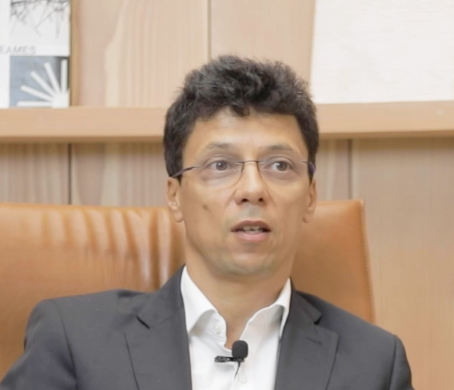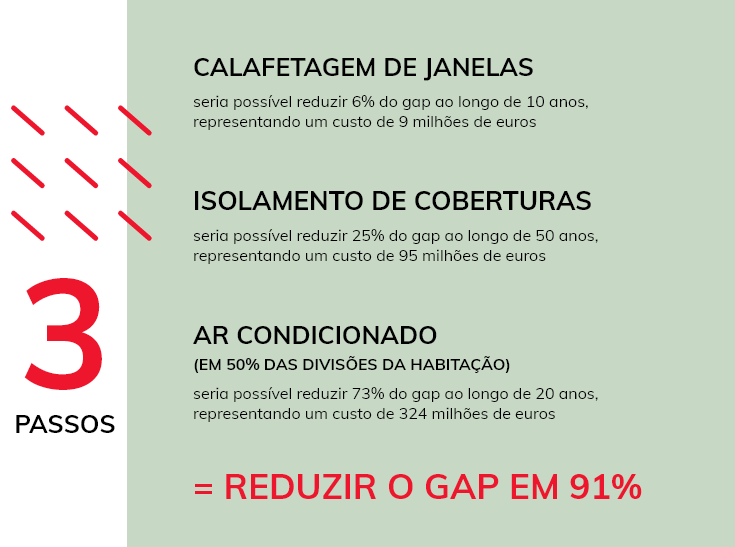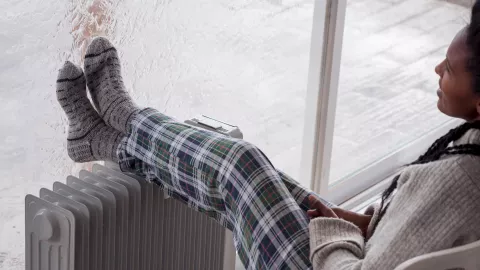EDP and ISEG came together to carry out a study on energy poverty. The results are unmistakable: Portugal is one of the countries with the highest percentage of poverty, energetically speaking. But solutions are more straightforward than one might think.
A blanket over the legs, while on the couch watching TV. The image is part of a huge percentage of Portuguese homes. In such a way that it became normal: it is accepted that you feel cold at home. In the same way that, in the summer, it is expected to spend sleepless nights with the excess heat that is felt in homes. But it shouldn't be like that. What has become culturally accepted in Portugal, in fact, are clear examples that there are many Portuguese homes where one lives in energy poverty. In Portugal it is culturally accepted to be cold at home, this does not happen in other countries. We are on the tail of Europe on this subject. Portugal has almost twice the energy poverty, there are between 10 to 18% of the energy poor in our country. There are plenty of people that suffer from cold in Portugal and there are people dying of cold in Portugal, says Selwin Wever, responsible for Special Projects in the Product Development Department, and responsible, on behalf of EDP, for the study carried out in partnership with ISEG, on Energy Poverty in Portugal.
This study sought not only to explain and quantify energy poverty in Portugal, but also to point out solutions. The study shows that we have much more energy poverty in Portugal than in other countries, for various reasons - economic, cultural - and allows us to understand who and where these people are. A very clear picture of what to do was achieved, and then some paths were pointed out.
However, before going down these paths, it is necessary to understand exactly what energy poverty is. The study is very clear: "Being energetically poor is not having the money to gather the minimum conditions of comfort inside the house, usually in the winter, but also in the summer”. In other words, "it is not exactly the same thing to be poor that it is to be energetically poor". Being energetically poor can be related to low income, but also to cultural habits and architectural heritage. For example, in the past, in some regions of the country, people had animals at the bottom of the house, and this helped warming up, as well as fireplaces. The older buildings had very thick, and suited to our climate, walls. Then, the buildings of the 1970s-80s were a big setback at this level.

"Being poor in energy is not having the money to gather the minimum conditions of comfort inside the house, usually in the winter, but also in the summer"
Selwin Wever, Special projects - Product Development Direction
How is energy poverty resolved in Portugal?
According to this study, the solution to energy poverty in Portugal has a number: 400 million euros per year. However, this large number may not be the best way to solve this problem, as explained by Selwin Wever. The fight has to be done with a view to solving the problem at its root. In the same way that we cannot solve a flu with pills to lower the fever, we have to go to the heart of the matter, and that is to improve the energy efficiency of these houses.
And this improvement - fighting the so-called energy gap (comparison between effective household consumption and adequate reference consumption for a normal level of well-being) - can be done with very simple steps:

These measures, in addition to being simple, are proof that the eradication of energy poverty in Portugal is possible, and through values much more realistic than the aforementioned 400 million per year. In fact, really different values. And that is the great conclusion of this study: Analyzing an average Portuguese family, in an average dwelling, it was understood that the cost to put your home in a comfortable state would be of about 27 to 40 euros per individual/month, over a year. This is the value to move on from living with discomfort to living with comfort.
However, Selwin Wever explains, "the issue of energy poverty has been relatively ignored by the responsible entities. There are not as many active policies in Portugal, as in other countries with less severe energy poverty situations than ours. There is much to be done in Portugal in this regard, but for these to be accelerated, measures and incentives are needed. The More Sustainable Buildings Program, which used up the 4.5 million euros available in 3 months to support the improvement of residential buildings, is an example of an incentive to be reinforced. Especially because, with more efficient houses, and consequently, a lower rate of energy poverty, we are all, together, contributing to the reduction of greenhouse gas emissions and a greener future.



